Ongoing research into how certain running shoes affect knee health discovered that minimalist running shoes actually work better at preventing knee pain and injury by significantly improving footstep stability (no over-pronation) during stance while engaged an overall smoother motion of the foot on the ground!
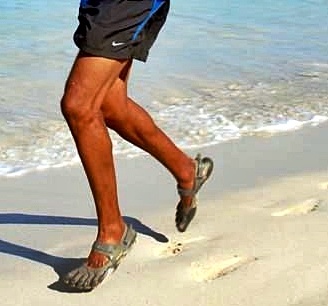
In running, over-pronation is when the back of the foot shifts around in extreme positions, which is why its considered a major risk factor for shin splints and knee injury because the foot’s excessive twisting and bending transfers up the leg. Weak feet are one reason for over-pronation as the foot is too weak to stabilize itself. Thick underfoot cushioning that’s too compressible also creates a destabilized landing surface that causes unsteady footfalls, leading to over-pronation which cascades rotational stress up the shin to the knee.
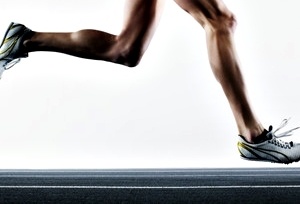
Foot pronation in general is needed and is the body’s natural way of minimizing impact. Essentially, it’s the foot’s natural way to absorb shock. Most runners however rely completely on running shoes with incredibly thick and inflexible cushioning to absorb shock. But, is this really effective?
A study in the journal, Medicine and Science in Sports and Exercise, discovered that runners with knee pain pronated 25% less than non-injured runners. The runners with knee pain also purchased new footwear more frequently than the non-injured runners whereby new footwear is always stiffer.
- Runners who wear newer footwear are more likely to have difficulty pronating naturally because the shoes have not been ‘broken-in’.
- Because newer running shoes are stiff and inflexible, landings during running are more rigid which impedes shock absorption on the lower leg.
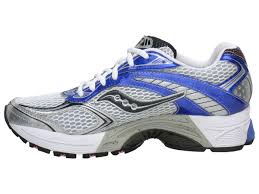
These results mean that new traditional running shoes prevent natural pronation, and because of this loss of function at the foot, there seems to be more compensatory actions that result in conflicting internal and external rotational forces up the leg and heavily burdening the knee.
A similar study in the same journal argued that habitual shod (shoe) runners had a lack of protective behaviour at the foot (i.e. not enough pronation) due to mechanical interference imposed by the standard running shoe.
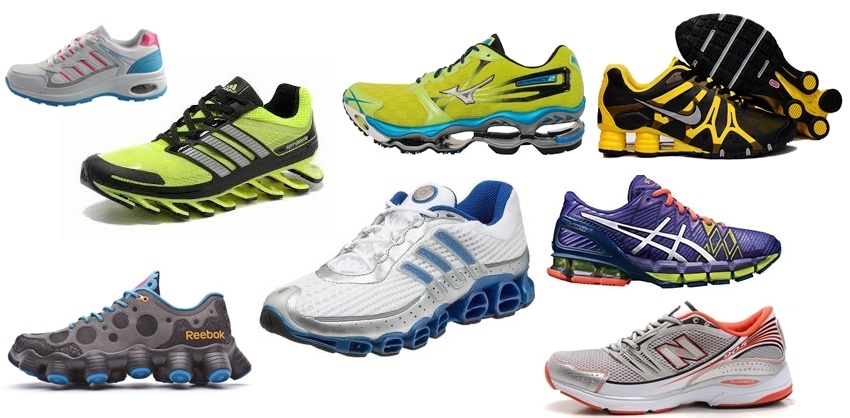
Worse still, ongoing studies found conventional running shoes do nothing for knee injury prevention, rather, knee injury seems to increase as running shoes become thicker with cushioning. Researchers are becoming more certain that specific quantities of underfoot cushioning profoundly alters the timing of joint actions during the support phase of running.
All in all, the science is settled on standard running shoes directly cause unusually rigid foot-ground interactions, which is why the magnitude of peak forces is consistently large at the knee.
Last but not least, a renowned barefoot advocate, Dr. Steven Robbins argued that since standard running shoes have not been validated, how can we be so sure these shoes reduce injury?
Why Minimalist Shoes Are MUCH Better!
In order to keep your knees safe when running, the key is to keep your feet sustainably strong, and only in minimalist shoes, or being barefoot, will you have the most widespread functional engagement on all sectors of your feet, which improves the natural shock absorbing abilities of the foot/ankle complex.
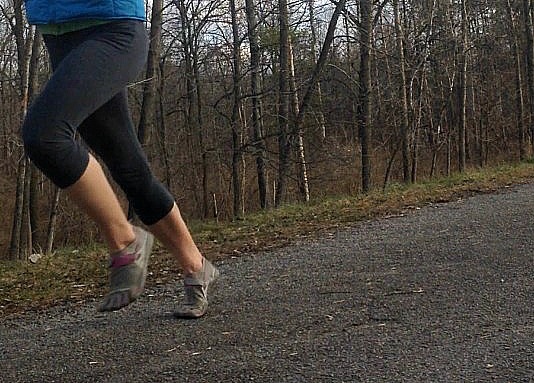
Whats more, minimalist shoes are fully flexible and wide, so the toes spread out fully to increase surface area to aid in better stability. The high degree of flexibility also encourages natural foot pronation, so the foot is able to absorb impact more effectively.
Sadly, most podiatrists disdain the fact that minimalist footwear are a proven cure forover-pronation, and instead, prescribes orthotics ( stiff casts for your feet *LOL*), because podiatrists charge hundreds, if not thousands off of one orthotic!
Money is the only reason your podiatrist hates minimalist shoes, and the barefoot movement. Clinical judgements are saturated with the morphological perspective that our feet are inherently weak, and also, our long evolutionary history as barefoot endurance runners is considered inconsequential in medicine.
Luckily, if you look harder at the literature like I do, you’ll see all sorts of evidence showing that standard running shoes is the main impediment to foot function, which explains the persistent injuries, such as runners knee that chronicle plagues habitual shod populations, not habitual barefoot populations!
Read more here about the accumulating evidence showing minimalist shoes have a more positive influence on not just foot health, but the health of your body, and performance!

References:
Duffey et al. Etiological factors associated with anterior knee pain in distance runners. Med Sci Sports Excer, 2000;32(11):1825-1832.
Robbins SE., Hanna AM and Gouw GJ. Overload protection:avoidance response to heavy plantar surface loading. Med Sci Sports Exerc, 1988; 20(1):85-92.
Bretta Riches
BSc Neurobiology; MSc Biomechanics candidate, ultra minimalist runner & founder of RunForefoot. I was a heel striker, always injured. I was inspired by the great Tirunesh Dibaba to try forefoot running. Now, I'm injury free. This is why I launched Run Forefoot, to advocate the health & performance benefits of forefoot running and to raise awareness on the dangers of heel striking, because the world needs to know.
Latest posts by Bretta Riches (see all)
- Can You Run In Barefoot Shoes? Yes, But DON’T Heel Strike! - 21/07/2024
- Why Cushioned Running Shoes Are Really Bad for Your Feet - 19/07/2024
- Do Cushioned Running Shoes Cause Injuries? - 17/07/2024
